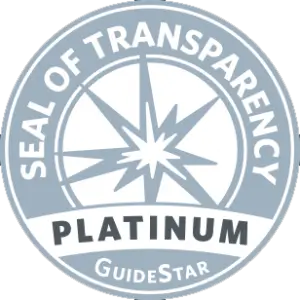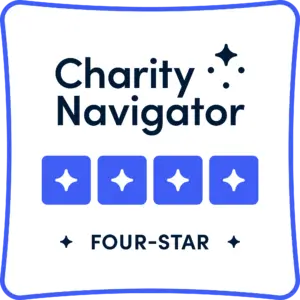Earlier this year, I started working with a landowner who controls more than 160 acres and 3,300 feet of riparian area along the Dolores River in the heart of the Paradox Valley in western Colorado. The landowner, Vicki Phelps, has managed this property for nearly 20 years and has always considered it a wildlife refuge. However, unmanaged free-range livestock access, tamarisk and Russian knapweed invasion, and regulated flows resulting from McPhee Dam have degraded the value of habitat for wildlife.

As we worked together, it became evident that Vicki was passionate about environmental education and scientific research. As a novel approach to restoration monitoring on her property, I suggested we emulate the BioBlitz strategy to establish a baseline inventory of the property. A BioBlitz is an event where teams of scientists, students, teachers and volunteers survey as many living species as possible in a given area during a short period of time. Using the BioBlitz approach, we assembled experts from a variety of ecological disciplines, along with teachers and students from the local community, to inventory the species on Vicki’s property.
This year, we conducted two BioBlitzes on her property near Bedrock, CO. The first was May 5-8, so we could capture spring migration and early wildlife activity and document the condition of vegetation during the early growing season. The second BioBlitz was Sept. 27-30 to capture fall wildlife activity and document how vegetation responded to summer growing conditions.
Over the course of these two BioBlitzes, we used a variety of monitoring methods (species found):
- Point counts for birds (46 species),
- Trapping grids for small mammals (3 species),
- Pit fall traps for arthropods (21 species) and herptofauna (2 species),
- Track plates for meso-carnivores (3 species),
- Trail cameras for game animals (2 species),
- Acoustic recorders and mist nets for bats (9 species), and
- Vegetation inventory (46 species from 7 habitat types).
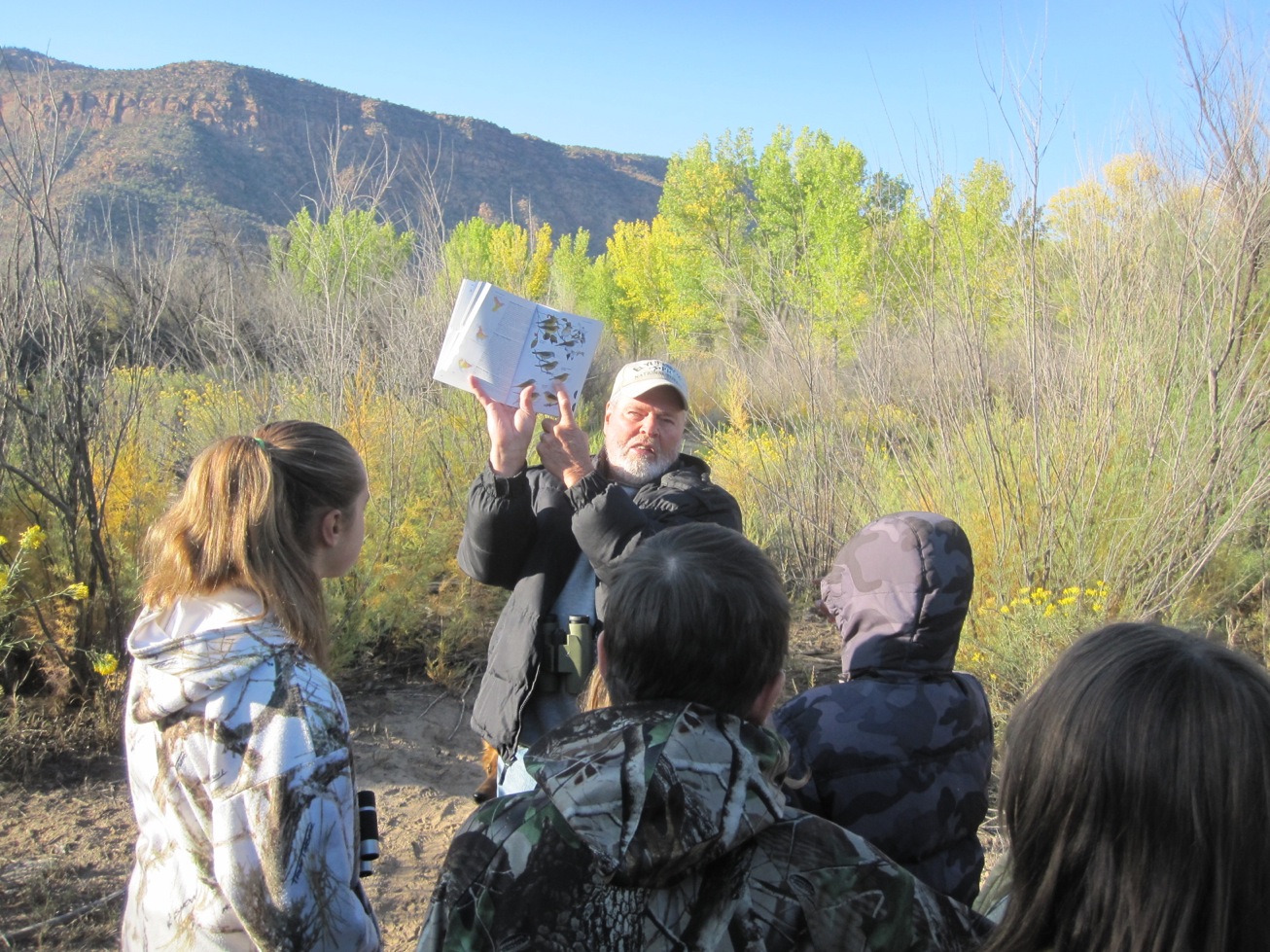
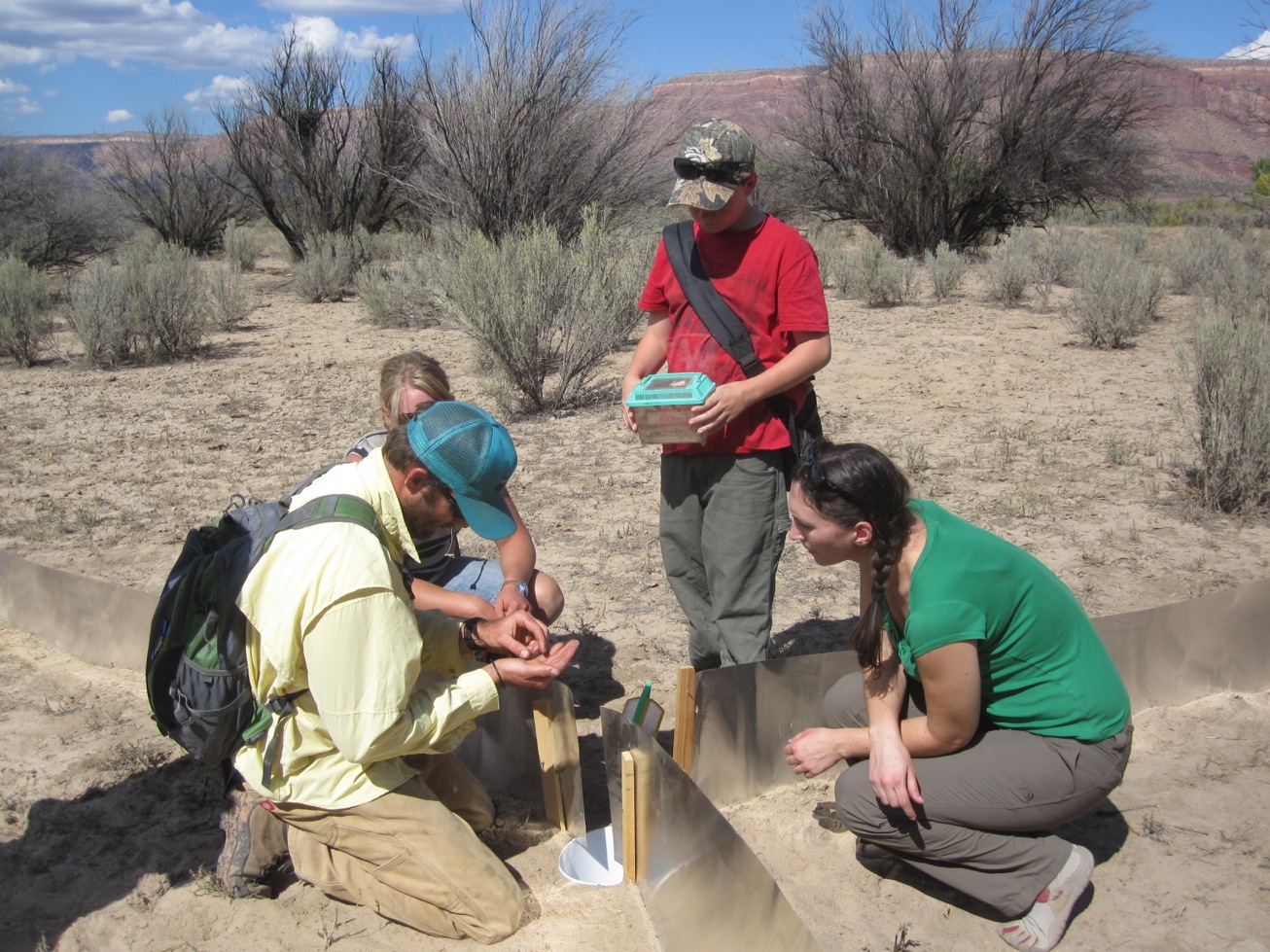
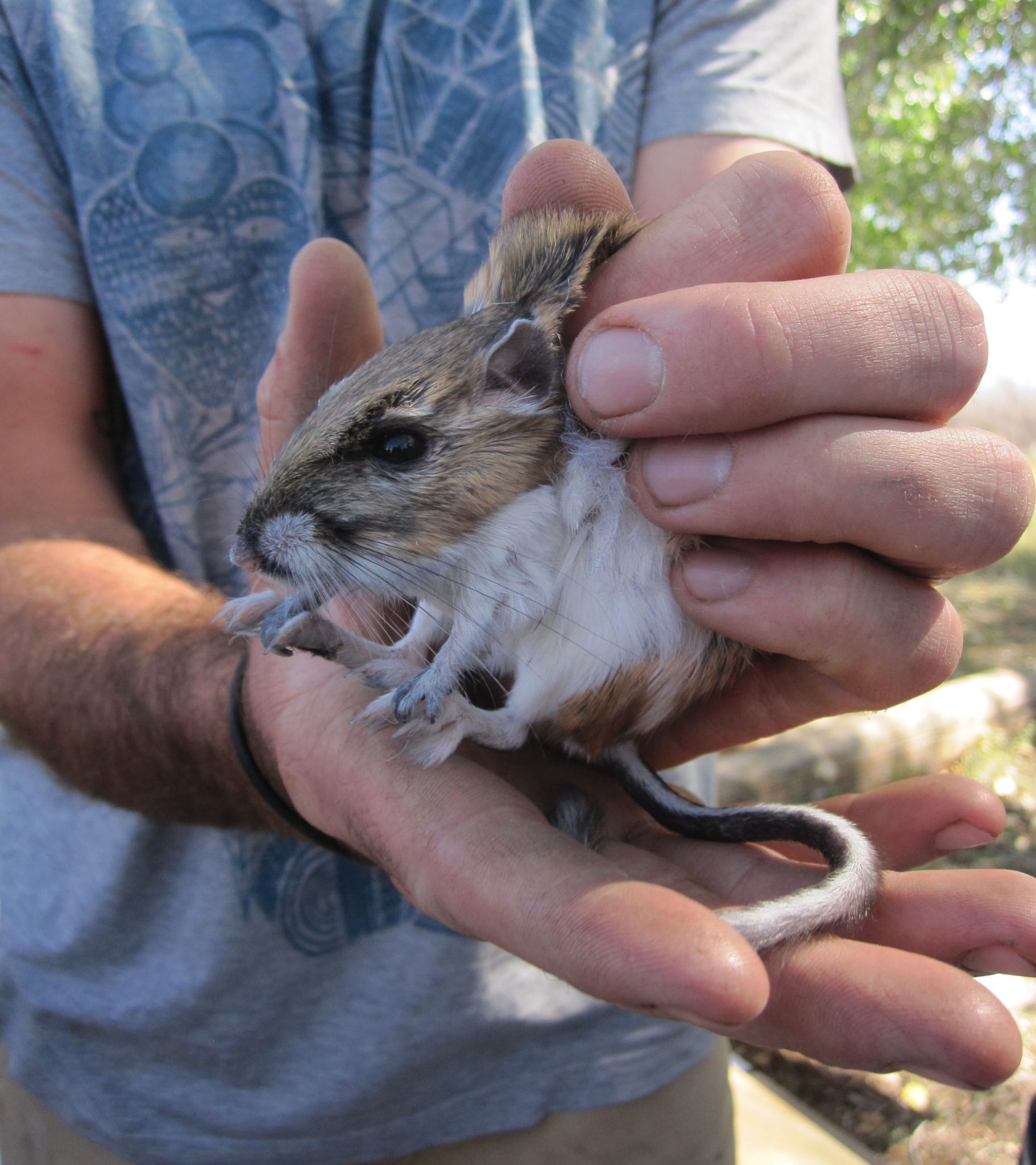
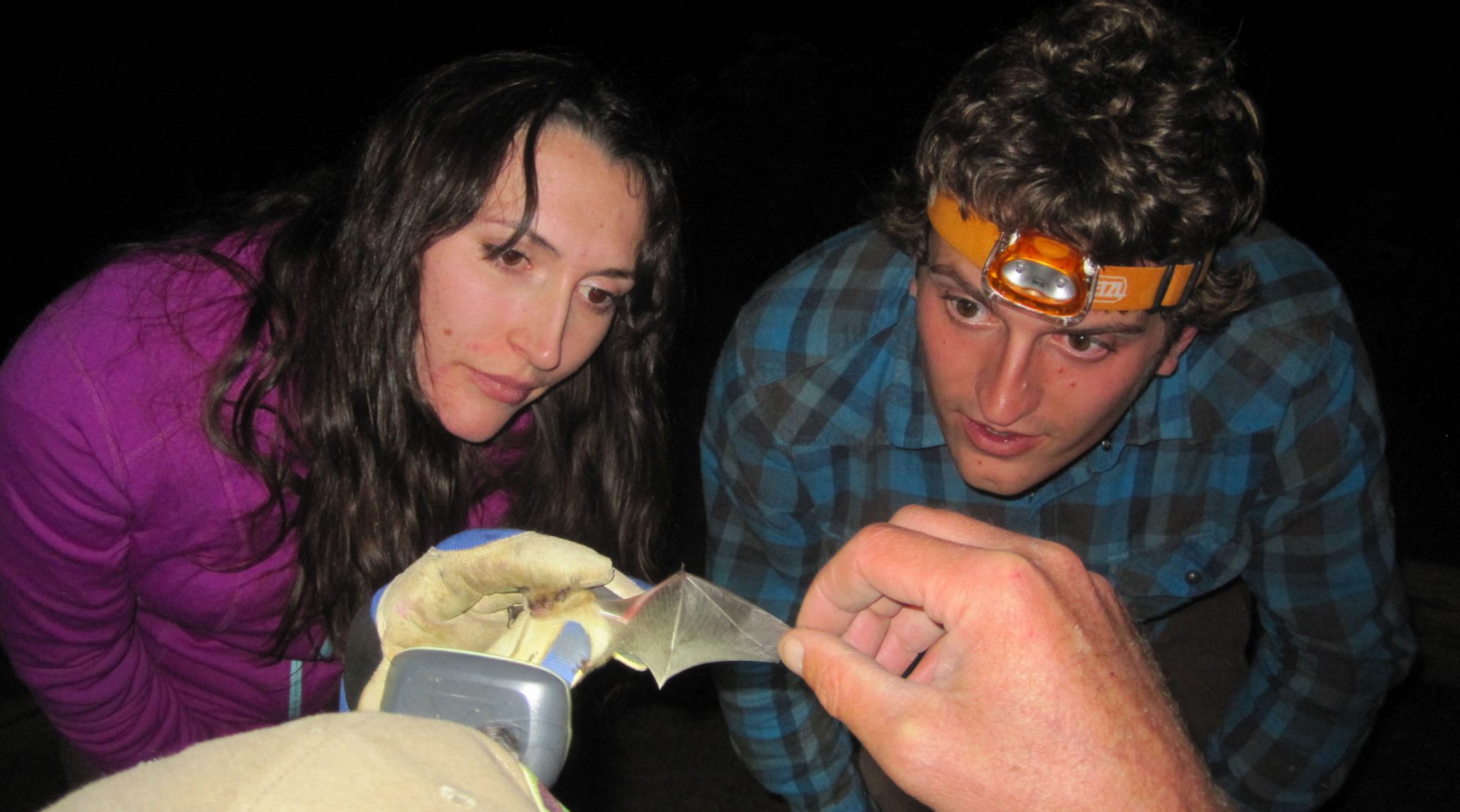
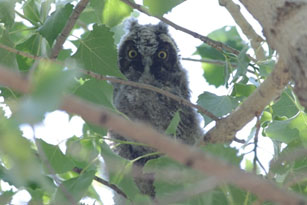
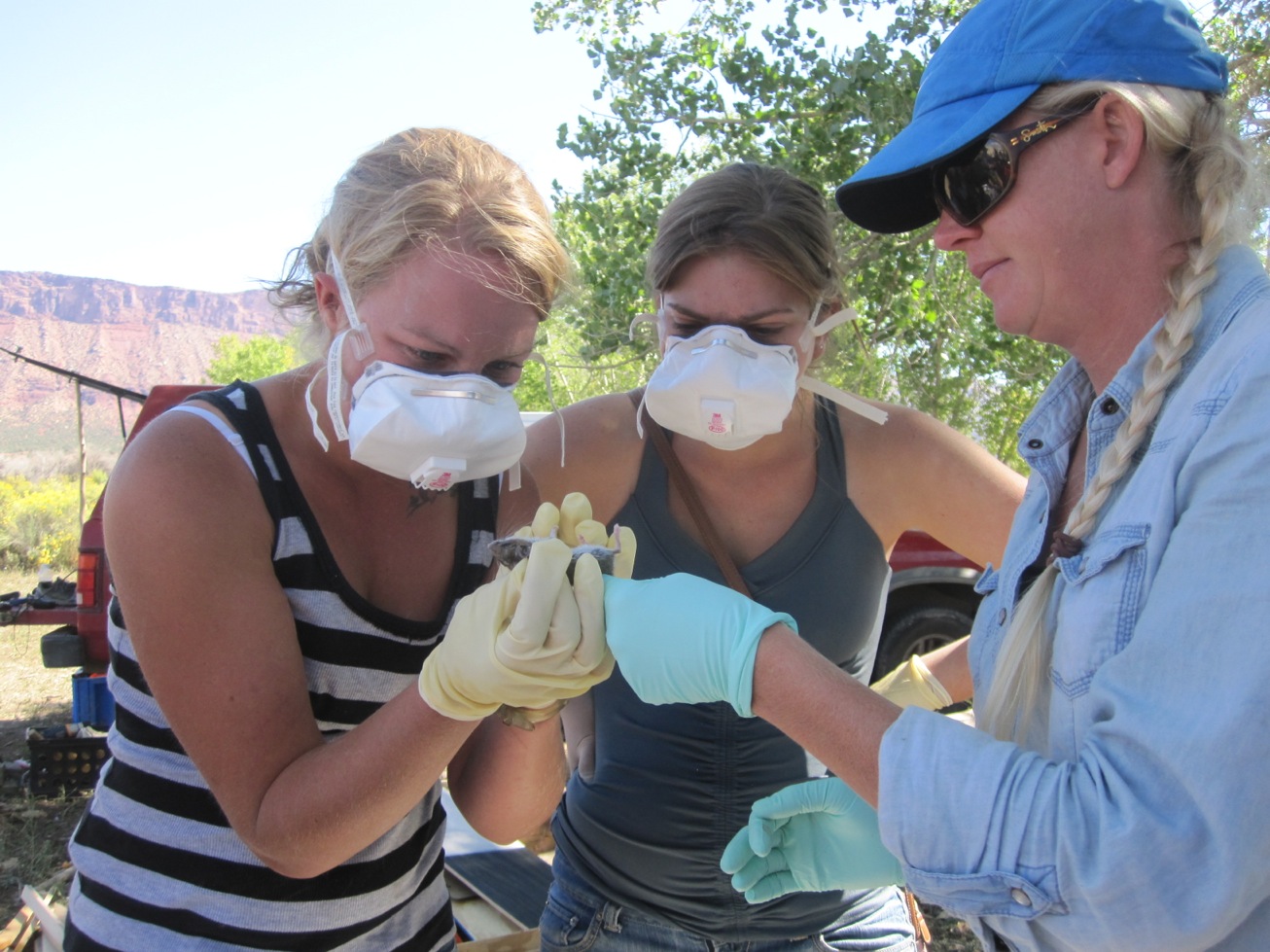
These successful BioBlitzes have provided a solid baseline from which we can monitor changes in the wildlife community as a response to habitat restoration on the property, which should begin in 2013.
Thank you to Vicki Phelps for your dedication to habitat restoration, The Lois Webster Fund of the Audubon Society of Greater Denver for supporting the project, and all the participants in the BioBlitzes and restoration planning: Colorado Parks and Wildlife, Colorado Natural Heritage Program, Mountain Studies Institute, Soil Carbon Coalition, Goebel & Associates, Dolores River Restoration Partnership, Natural Resources Conservation Service, Fort Lewis College, Nucla High Schools, Naturita Middle School, local citizens and, of course, your Rocky Mountain Bird Observatory!
For questions or results from the Bedrock BioBlitz, contact me at martin.moses[at]co.usda.gov or our Stewardship staff. Results will also be shared with the restoration community through the Wildlife and Habitat Restoration Working Group of The Wildlife Society and the Colorado Plateau Conservation Registry.
~ Martin Moses, Private Lands Wildlife Biologist



